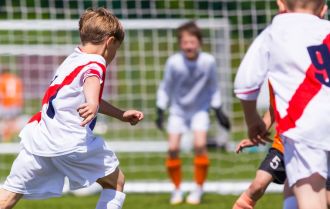MindLab
Calming Tournament Nerves with Red2Blue Minds...
Teach your team the Red2Blue mindset techniques to shift from a stressed state (...
Difficulty
Mental Toughness: Techniques For Resilience
Mental toughness can be the defining factor that leads a player to success in so...
Free
Balancing Soccer And Mental Health
Creating a balance between soccer and mental health not only results in improved...
Handling Pressure: Coping Strategies
Players often face a wide range of pressures on the field, from making mistakes,...
Overcoming Performance Anxiety
Performance anxiety is a challenge that every soccer player faces, but it can be...
Mental Toughness Techniques to Enhance Your S...
Mental toughness is the ability to respond effectively and appropriately to chal...
The Role of Leadership in Soccer: What Makes ...
Leadership is defined as the capacity to lead, or the ability to positively infl...
The Mindset of Learning a New Position in Soc...
Keeping a dynamic and constantly changing game like soccer at peak performance i...
The Right Way to Handle A Big Loss or Failure
As a soccer player and a human being, you’ll face challenges and tough situati...
10 Ways to Improve Your Confidence When Playi...
Getting confident in your abilities as a soccer player can be challenging. As wi...
The Mental Trauma of Soccer Injuries
Serious soccer injuries are a risk for players of any age. Considering the high-...
Tips for Playing Soccer When You're Dealing w...
When you’re facing a difficult time in your life, it can be easy to withdraw f...
Building a Winning Mindset on the Soccer Fiel...
Success in any field requires mental toughness, drive, and determination. From t...
Mental Health in Soccer: It’s Not a Game
Mental health and sports can seem like two separate worlds that don’t overlap.
Five Tips for Difficult Player Conversations
It's not always easy to talk to players about their performance or an aspect of ...
Top Five Tips to Support Player Transitions
Transitions can affect players performance with distractions OFF the pitch. Here...















